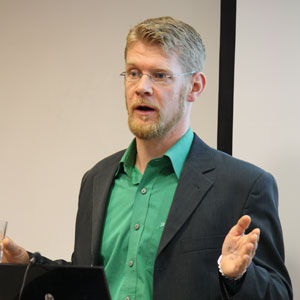Information
Venue
Start
End
27 July 2011 | CIL Seminar Series
The (Non) Use of Treaty Object and Purpose in Intellectual Property Disputes in the WTO
Introduction

Dispute Settlement Panels and the Appellate Body of the World Trade Organization (WTO) have long been criticised for a ‘textual’ approach to treaty interpretation which focuses too much on the ordinary meaning of treaty provisions. Arguably this approach responded to fears of judicial activism and overreach by the judicial bodies which in turn may encroach upon sovereignty and national autonomy of WTO Members. In some decisions however, especially the Appellate Body has taken a more pro-active role, using for example object and purpose of the WTO Agreements to fill gaps and clarify ambiguities.
For example in the famous US – Shrimp dispute, the Appellate Body emphasised that the sustainable development objective enshrined in the WTO preamble ‘must add colour, texture and shading to our interpretation of the Agreements annexed to the WTO Agreement’.1 This of course includes the Agreement on Trade Related Aspects of Intellectual Property Rights (TRIPS). With its Articles 7 and 8, TRIPS is probably the only WTO Agreement which contains specific textual expressions of its object and purpose. In the Doha Declaration on TRIPS and Public Health all WTO Members stressed the importance of these norms for interpreting TRIPS. In substance, they align with the principle of integration flowing from the concept of sustainable development in international law.
Against this background, one would expect Articles 7 and 8 TRIPS to play a prominent role in WTO dispute settlement related to TRIPS. Anyone familiar with IP-related disputes in the WTO however knows that this is not the case. This presentation analysed when and how TRIPS jurisprudence has utilised these norms and offered explanations for their (non) use.
About the Speaker
Dr Henning Grosse Ruse-Khan is a senior research fellow at the Max Planck Institute for Intellectual Property, Competition and Tax Law in Munich, Germany (since 2007).
He previously worked as a Lecturer in International Trade Law at the University of Leicester, United Kingdom (2005-2007), as visiting scholar on WTO-, International Trade- and Intellectual Property Law at the International Islamic University in Islamabad, Pakistan (2004-2005) and as research fellow at the Institute for Information- Telecommunication and Media Law at the University of Muenster, Frankfurt a. M., Germany (2000-2003).
His research, policy advice and teaching focuses on international intellectual property protection and development issues, WTO law, negotiations and dispute settlement as well as other issues of international economic law. Next to a monograph on international intellectual property (IP) protection for databases, Henning has published widely in peer reviewed international academic journals, NGO policy papers and research handbooks.
His more recent research focus includes international IP enforcement; regional and plurilateral trade agreements (especially EPAs and ACTA) and their relation to WTO law; operationalising the concepts of sustainable development and corporate social responsibility; and linkages between IP, climate change, food security, public health and access to knowledge. He is executive Editor for the Commonwealth region of the International Review of Intellectual Property and Competition Law (IIC).
Further, Henning has provided advice to NGOs, IOs, multinational companies and developing country industries on policy space in WTO/TRIPS implementation; patent protection and public health issues, international and European IP and information law, and the effective use of WTO dispute settlement for developing countries and small economies. He has trained government officials of WIPO Member States on IP Enforcement issues.
Finally, Henning teaches at the Ludwig Maximilian University of Munich (LMU), the International Max Planck Research School for Competition and Innovation (IMPRS CI), at the Centre for International Intellectual Property Studies (CEIPI, Strasbourg) and the Munich Intellectual Property Law Centre (MIPLC).


